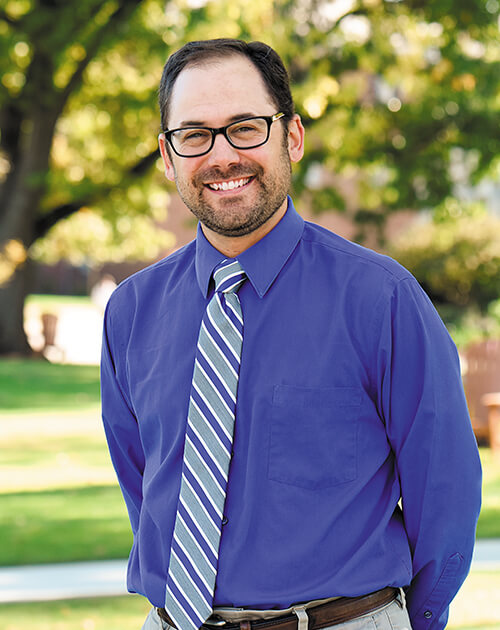A founding father you never knew

About a decade in the making, Paul Rego, professor of politics, has published his second book, “Lyman Trumbull and the Second Founding of the United States” with University of Press Kansas.
Who is Lyman Trumbull?
The book follows Lyman Trumbull’s life, especially his time as a chairman of the Senate Judiciary Committee and 18 years in the U.S. Senate, along with Rego’s analysis of Trumbull’s thoughts and debates.
Rego initially set out to write a book that focused on several people that he considered to be “Re-Framers” of the Constitution. Trumbull was one of the first people he focused on writing about. After finding himself writing more and more about Trumbull, it was growing to monstrous size—easily becoming a book-length manuscript.
“I think that these people had been forgotten to history. A lot of the attention is given to the original framers of the Constitution, but after the Civil War we saw the adoption of all of these Reconstruction amendments that were instrumental in fundamentally changing the document and also our constitutional republic,” he said.
The writing process
There were only a few books written about Trumbull when Rego officially started to put the research together. Rego wanted Trumbull’s legacy to be known to more people.
“People don’t know him but should know him. Scholars are aware of him, but the average layperson to whom the book is primarily directed, do not,” he said. “That was the case for most of these guys I had in mind. No statues, no honors, no schools named after them. They just wound up being lost to history, although I would argue they’re every bit as important as Madison or Hamilton or the original founders.”
His favorite part of the researching and writing process was spending time at the Abraham Lincoln Presidential Library, in Springfield, Illinois, during his Sabbatical, doing archival work. There, Rego spent time reading about Trumbull and letters he wrote to family members, including his first wife.
One day, Rego was sitting at a table in the library looking at letters, and a lock of hair from one of Trumbull’s children fell out. “I really felt more of a connection to him that I ever had before. Walking around Springfield, taking in the sites and feeling the presence of these people … made it
seem less isolating. There’s a personal and direct connection to history when you’re literally holding the hair of someone who was born 150 years ago,” he said. “It’s kind of awesome.”
What’s next?
Rego is currently starting a project to learn more about and understand the purpose of the 14th Amendment.
— Molly McKim ’23